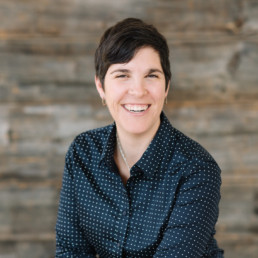NABSA and SUMC Brought Together Industry Experts for a Roundtable Discussing the State of the Industry
Earlier this year, NABSA celebrated the release of the 2020 Shared Micromobility State of the Industry Report for North America. In addition to reporting on ridership trends, the report includes CO2 offset, mode shift, transit integration, equity, physical activity, and economic impact metrics, among others, and importantly demonstrated the shared micromobility industry’s response and resilience to the impacts of the COVID-19 pandemic in 2020. As the only report of its kind for the industry, the annual Shared Micromobility State of the Industry report serves as an advocacy tool that can help promote policies that encourage shared micromobility.
To help NABSA reflect on the information contained in the report and what it means for shared micromobility, climate, equity, mobility, and society, the Shared-Use Mobility Center and NABSA convened a roundtable of experts to discuss. On November 15, Benjie de la Peña of SUMC and Sam Herr from NABSA were joined by Dana Yanocha of ITDP, Lina Fedirko of ClimateWorks, and Horace Dediu of Micromobility Industries for a virtual public roundtable of thought-provoking and informative conversation.
The conversation kicked off with an acknowledgment that despite the unique challenges presented by the pandemic in 2020, shared micromobility rebounded quickly. This was demonstrated by the fact that by the end of 2020, ridership came within 20% of 2019 levels. The previous fact, combined with e-bike popularity increasing from 7 million trips to almost 10 million and other metrics found in the report, show the industry’s upward trajectory and encouraging trends that we’re expecting to continue.
After initial reactions to the report highlighting ridership trends noted during COVID-19 and how the industry showed resilience in its response to the pandemic, discussants reflected on what was missing from the report. One interesting idea came from Benjie, the roundtable facilitator, who suggested comparing utilitarian trips and recreational trips. Horace responded by saying that “there’s a market for miles and a market for smiles” and that marketing smiles is seen in the increased ridership on weekends or at times of day outside of usual business hours.
Next, the conversation transitioned to equity, access, and representation. Dana started the conversation by pointing out that there is under-representation in shared micromobility related to race, income, and gender, but that the gaps are beginning to close – a fact found in the 2020 report. Additional points include the need to move beyond rebalancing as an equity technique to intentional targeting for the underserved and how the lack of safe infrastructure plays a role in equity. The report expands on this topic by including information on workforce diversity within the industry and shows where we can improve.
The conversation then transitioned to infrastructure and policy that affect the industry. NABSA’s Sam Herr pointed out new and increased funding opportunities available through the recently signed Infrastructure Investment and Jobs Act. This demonstrates an increasing awareness of shared micromobility as part of the greater transportation ecosystem. When asked how North America can be less car-centric and prioritize active and alternative transportation modes like Paris and Barcelona, Lina stated that industry collaborations could help, but creating safe streets and lessening car dependency would be even more impactful. Dana added that parking and congestion policy and other non-shared micromobility initiatives could significantly impact making mode shifts.
The 2020 State of the Industry Report showed the resilience and strength of the shared micromobility industry, and the benefits it provides to communities. As it grows and policies are developed to support it, there is even more potential for significant positive impacts on climate, equity, and access.
View the roundtable discussion recording and learn more about the discussants below.
Facilitator

Benjie de la Peña
Benjamin de la Peña is the CEO of the Shared-Use Mobility Center, a public-interest organization dedicated to achieving equitable, affordable, and environmentally sound mobility across the US. He also chairs the Global Partnership for Informal Transportation; is a Senior Fellow on Mobility for the Canadian Urban Institute; founded the boutique consulting firm Agile City Partners and serves on the US Advisory Group of the Institute for Transportation and Development Policy. He served as Chief of Strategy and Innovation for the Seattle Department of Transportation (SDOT) where he led the development of ground-breaking and nationally recognized technology and mobility strategies such as Seattle’s New Mobility Playbook and the draft Transportation Information Infrastructure Plan.
Discussants

Dana Yanocha
As Research Manager at the Institute for Transportation and Development Policy (ITDP), Dana coordinates research and analysis of trends in sustainable transportation-focused primarily on cycling, bikeshare, and other forms of shared mobility. She has led the development of key ITDP publications including the 2018 Bikeshare Planning Guide, The Electric Assist, and Taming Traffic. She holds an MA in Sustainable Urban Development from DePaul University and a BA in International Politics from Penn State University.

Horace Dediu
Horace Dediu is an analyst and founder of Asymco, the Critical Path and the Micromobility podcast. A renowned business analyst and leading expert on the mobile industry (Fortune magazine declared him “King of Apple Analysts”), Dediu has in recent years shifted his attention and authority from mobile phones to smart transportation. Horace coined the term “micromobility” to describe shared vehicles weighing less than 500 kg. Dediu has master’s degrees from Harvard Business School and Tufts University in business administration and electrical engineering, respectively.

Lina Fedirko
Lina Fedirko is a Program Manager on the Transportation Program at the ClimateWorks Foundation, which advances a sustainable, affordable, and zero emissions mobility system for people and goods movement. She leads grantmaking on EV battery supply chains, urban mobility, transport electrification in Indonesia, and sustainable lifestyles. Prior to joining ClimateWorks, Lina contributed low-carbon policy research to Climate Change and Cities, Second Assessment Report of the Urban Climate Change Research Network (UCCRN), and worked with a number of local New York NGOs on transportation and access policy issues.

Sam Herr
Sam has been NABSA’s Executive Director since 2017. As a mobilities professional working at the intersection of climate and equity, she has been working in the field of shared micromobility since 2012. She has held positions with the City of Boston, Bicycle Coalition of Maine, and as a mobilities researcher. She holds a BA in Anthropology and a MA in Geography.
